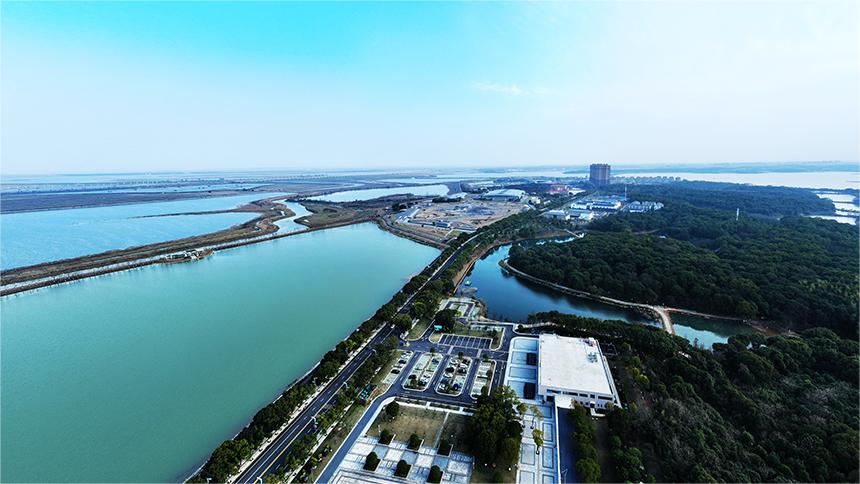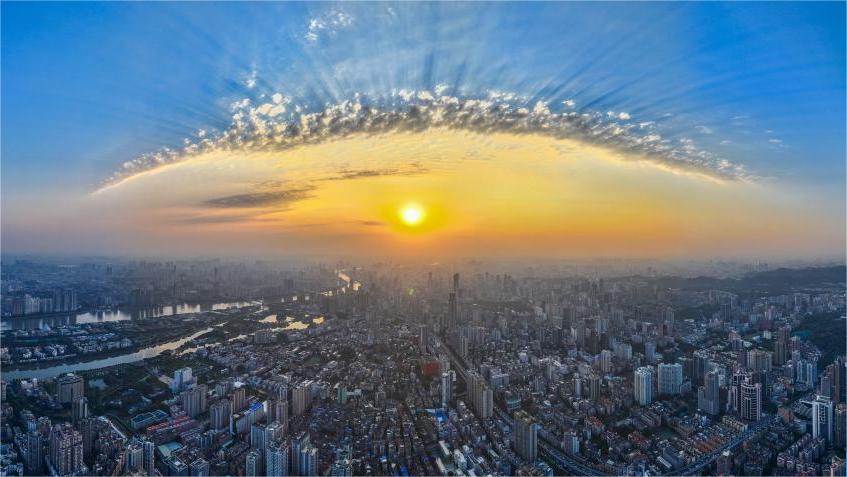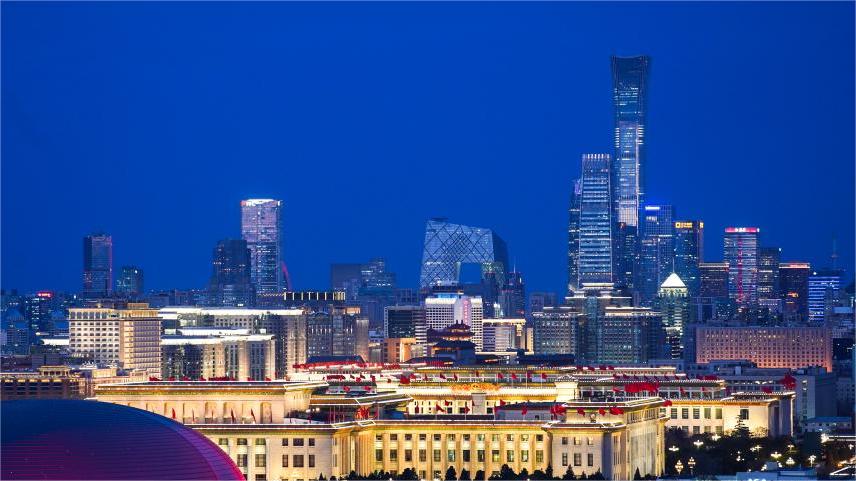Strides made toward more global diversity
Vision: GCI seen as 'the third pillar of China's proposal'
On a windy night in late February, diplomatic envoys from different countries were reluctant to leave after spending three hours at the China National Opera House in Beijing watching a choreographed portrayal of the ancient Chinese landscape painting A Panorama of Mountains and Rivers.
Many of them extended invitations to the show's directors, hoping that people in their own countries could also appreciate this breathtaking performance, which made the audience feel as if they were part of the painting.
Nico Schiettekatte, from the embassy of the Netherlands in China, said the dance drama provided him with a different way to look at other paintings about nature and landscapes, including those by famous Dutch artists such as Van Gogh and Rembrandt.
"I think we share a lot in common. We all have a history related with nature, but our experience of nature is different in a cultural way," Schiettekatte said, emphasizing the importance of exchanges among different cultures.
Respect for the diversity of civilizations is one of the four aspects of the Global Civilization Initiative, which was proposed by President Xi Jinping on March 15, 2023.
Speaking at the time to leaders of political parties from around the world, Xi said China is ready to work together with the international community to open up new prospects for enhanced exchanges and understanding among different peoples, and better interactions and integration of diversified cultures.
"Together we can make the garden of world civilizations colorful and vibrant," Xi said.
Over the past year, China has shown the rest of the world its sincerity, with practical actions to implement the Global Civilization Initiative and to promote exchanges and mutual learning with other civilizations.
Yang Mingjie, president of the China Institute of Contemporary International Relations, said the initiative is a strategic vision gaining increasing recognition from the international community because it addresses current problems caused by conflicts or confrontations between different civilizations.
"It calls on countries to transcend estrangement and clashes through cultural exchanges and mutual learning," Yang said.
He added that since the initiative was proposed, China has made all-around efforts to promote cultural and people-to-people exchanges at the bilateral and multilateral levels.
For example, during the Chengdu Summer Universiade last year, more than 6,500 young athletes from 113 countries and regions got the chance to experience in person the unique charm of Chinese civilization as well as that of Sichuan culture, by visiting the giant panda base, tasting hotpot and taking part in intangible cultural heritage activities such as playing with shadow puppets.
Siyabonga Cyprian Cwele, South Africa's ambassador to China, said he was glad that dancers from an art troupe in Cape Town visited China last year and displayed the charm of South African arts to a Chinese audience.
"Our political relations are fine and our economic relations are growing, so we need to intensify people-to-people exchanges to create a better understanding between our peoples and improve our overall relationship," he said, noting that President Xi and South African President Cyril Ramaphosa have guided the two countries' efforts in promoting cultural exchanges.
When Greek Prime Minister Kyriakos Mitsotakis made an official visit to China in November, he told Xi that Greece was ready to work with China to run the Center of Greek and Chinese Ancient Civilizations, advocate mutual learning, and promote the establishment of more harmonious and balanced international relations.
Zhao Mei, a senior fellow at the Chinese Academy of Social Sciences' Institute of American Studies, said the Global Civilization Initiative was proposed in the hope of getting more people to be aware of the value of exchanges among different civilizations and boosting confidence in cultural exchanges and cooperation.
According to Zhao, the people-to-people contacts between China and the US are recovering, especially after the meeting in San Francisco last year between the two heads of state.
"Yet the level of communication is far from reaching the pre-COVID level, so more needs to be done to facilitate mutual visits and enhance mutual trust between the Chinese and American people, who are both brave and hardworking," she said.
Xi announced in November at a welcoming dinner by friendly organizations in San Francisco that China was ready to invite 50,000 young people from the US for exchanges and study programs in the next five years to increase exchanges between the two peoples, especially between youths.
He told those present at the banquet that the development paths of China and the US are different, but both paths are the choice of their peoples that lead to the realization of the common values of humanity and should both be respected.
"The purpose of the Global Civilization Initiative I proposed is to urge the international community to address the imbalance between material and cultural advancement and jointly promote the continued progress of human civilization," he said.
Observers said efforts to implement the initiative should continue, as it bears great significance for advocating an equal and orderly multipolar world in which some countries are still obsessed with drawing ideological lines and creating small cliques.
"No country sees itself as a peg to be shaped by others, so it can be fitted into a designated hole," said Einar Tangen, a senior fellow at the Beijing-based think tank Taihe Institute. "Only through mutual understanding and respect can people and countries identify and understand each other's differences, then accept them and exist in harmony."
Tangen said that the initiative is about recognizing and respecting the differences between countries, while acknowledging that they share common aspirational goals for their people in terms of security, sustainability, peace, development, respect and self-determination.
"The GCI is the third pillar of China's proposal for a world order based on aspirations rather than coercion," he said, referring to the other two global initiatives previously proposed by China on development and security.
Days after the abrupt escalation of the Palestine-Israel conflict on Oct 7, China and the Arab side held a symposium in the United Arab Emirates on China-Arab relations and civilization dialogue, in the belief that enhancing intercivilizational dialogue can be an effective remedy for fixing the problem of confrontation and conflict.
"China stands ready to work with Arab countries to further unlock the power of civilizations and jointly act on the GCI to inject more stability into a world of change and instability and contribute more to the shared response to global challenges," Foreign Ministry spokeswoman Mao Ning said.
Photos
Related Stories
- How does Xi push through reform in adversity and dismantle vested interests?
- How does Xi address the "Achilles' heel" of China?
- What is the ultimate goal of Xi's reform?
- Pakistan, China vow to cement ironclad ties
- Why is Xi regarded as China's another outstanding reformer after Deng?
- What and how will China reform in the future?
Copyright © 2024 People's Daily Online. All Rights Reserved.









